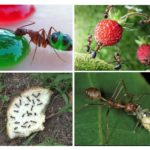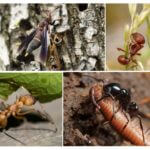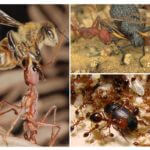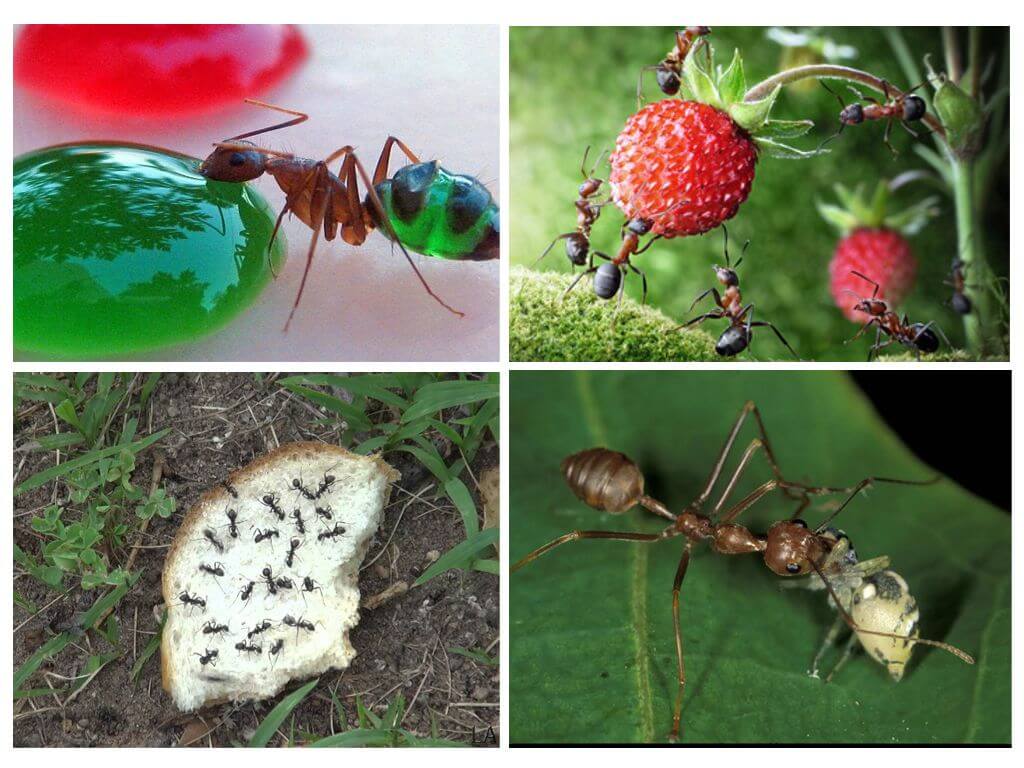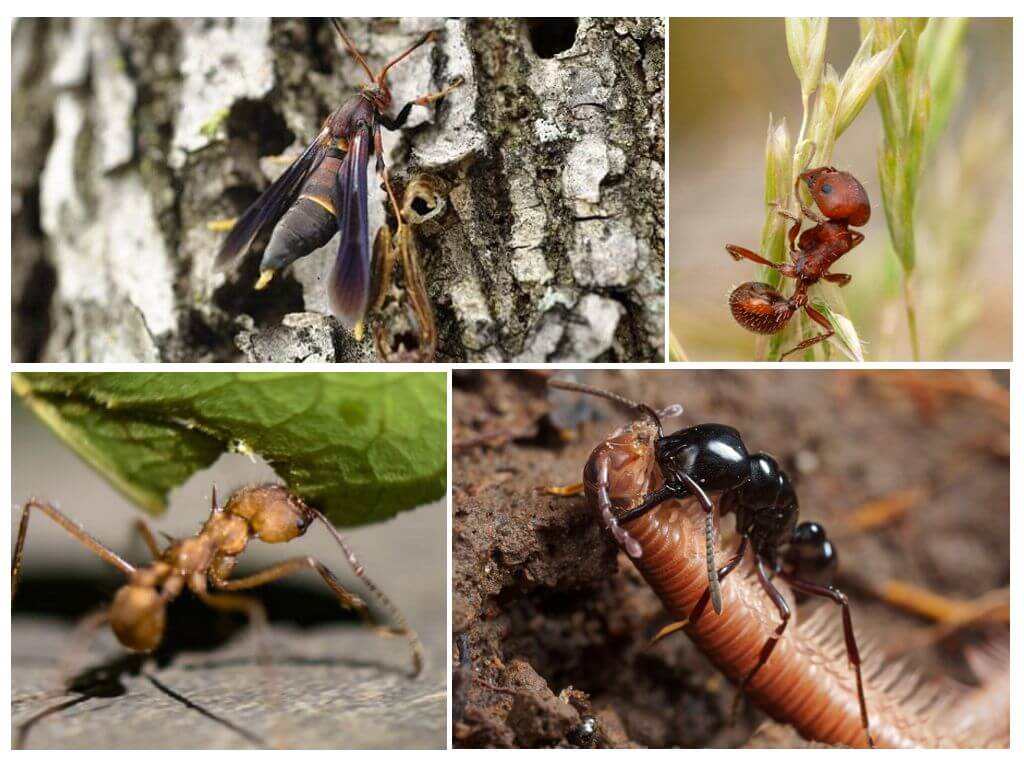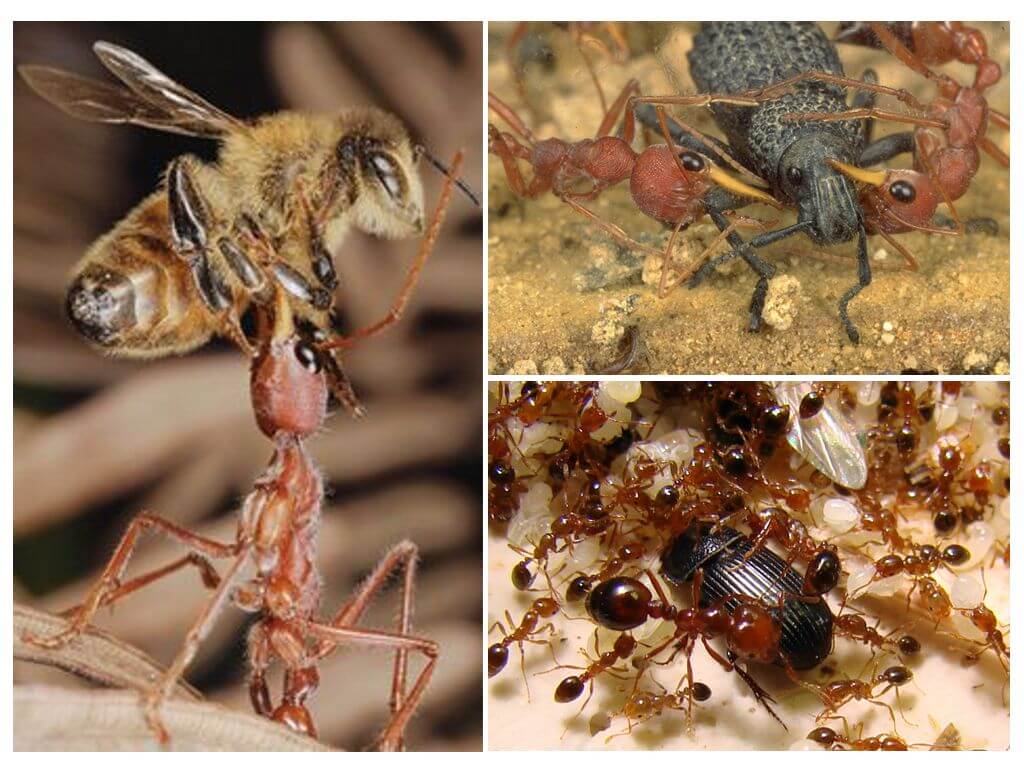What ants eat in nature
Content
- Food for ants
- Food for insects in nature
- Food for predator ants
In nature, ants live in colonies, building homes with underground passages and raising offspring. In addition to the forest, there are still red domestic and their predatory representatives attacking animals much more than themselves. What ants eat in human habitation and in nature depends on their species and habitat.
Hierarchy in the anthill
Anthill - a kind of society, almost democratic, in which everyone performs his work depending on the status:
- Workers or foragers are obliged to deliver food, take care of all inhabitants and protect their home from enemies, eat ants what is found when searching for food, as well as stocks in the colony itself.
- Uterus - female ants laying eggs, eat the most tasty and necessary protein food.
- Males - designed for mating with a femaleafter which they die.
- The larvae are divided into 2 groups: some feed themselves, others need constant feeding, which is what all adult individuals do, specially preparing food for them. Depending on the diet of the larvae in the future, after pupation, they become either workers or queens to produce offspring.
Food and its distribution
Ants are omnivorous insects, whose diet depends on the habitat. The main life rule of their behavior is to find a piece of food and deliver it to the anthill, after which all the supplies are distributed among the inhabitants:
- Growing ant larvae need to eat animal protein, i.e. eggs or the remains of other animals in the forest; dairy products and waste from egg dishes to the apartment.
- Adults prefer to eat lighter food: fruits with pulp, nuts, roots and juices of plants, in the living room - sugar, honey and all sweets.
- Most species of ants observes the carbohydrate diet, which includes juices from the leaves of plants and pad - sweet insects, the most popular of them is aphids.
Interesting!
Diet forest ants makes up 60% of the hell, so they contain a large number of aphidswhich you can milk constantly.
During the day, the ants eat everything in the forest, which they will find several times: either on the road, collecting and transporting food, or in the anthill itself absorb reserves. In the autumn, they actively collect and stack all the food in their home, after which the anthill closes for the winter. However, its inhabitants don't sleep in winter, they continue their activity, feeding on the collected stocks throughout the cold period.
As soon as the sun warms, the entire population of the anthill goes to work, starting the search for everything edible in the forest. As in other warm months, in the spring they feed on awakened insects, fresh plants and everything that can be eaten.
On a note!
With a severe frost, the population of the anthill hibernates and can starve for quite a long time. In the northern regions of Russia, the period of anabiosis can last up to 9 months. At such a time, they feed not only on food supplies, but also on trophic eggs that were laid by the uterus and did not turn into larvae.
Food in nature
Forest ants living in the middle lane feed on everything found in the forest or in the field:
- larvae and other insects;
- small invertebrates;
- cereals and grass seeds.
What ants eat in nature depends on their species. Among them are those who eat only 1-2 foods:
- wood borers - eat gum, i.e. wood resin released after damage to the bark of trees;
- insects reapers Eat grass seeds, the food is hard enough, so the "soldiers" have powerful jaws to grind the seeds to a gruel state, after which all residents of the colony can eat it;
- leaf cutters - collect and chew pieces of leaves in a mush, then storing them in one of the chambers of the nest for breeding mushrooms, which the ants eat, the leaves themselves are not eaten;
- centrumirmeksy - eat only termites;
- Dracula is a very interesting species: they feed their larvae with insects, and the ants drink only the juices that these larvae produce;
- Ponerins - specialize in different types of insects.
Food predator ants
The food of ants living in various tropical countries is varied in diet and for the most part they are predators:
- Nomadic or stray - refer to the most dangerous ants in the world, predators and eat animal food: insects and their larvae, small lizards, frogs and even young chicks, they also feed on wounded or dead animals.
- Bulldog - a very interesting predatory species of ants, having powerful jaws, stings that help in hunting: it collects small insects and invertebrates with which it feeds its larvae.
- Red fire ants eat various insects, in their habitat, they reduce the number of pests of agriculture, destroying cotton weevils, ognivku on sugar cane. They attack and drive away their own brethren.
Interesting!
Exist honey antswhich specifically fatten some of their comrades to the state of a “barrel”, unable to move and living in a nest. When there is a period of famine or drought, the "canned" ants produce syrup, which is food for the rest of the colony.
Food for home and garden ants
Ants eat at home almost everything. They are ways to find food even in the most clean and tidy apartment: pick up any bread crumbs, small saccharinka or a drop of oil.
When settling in human habitation, an indoor ant eats the most varied food, literally everything that is in an apartment or house: bread, various cereals, sweets, dairy and meat products, sausages, and even spices.
Black garden ants eat, besides small insects, also discharge from diluted aphids. They specially plant aphids on plants in the garden and in the garden, carefully take care of their “farm”, protecting them from other pests and from adverse weather events. In order to drink the sweet mead, released by the aphids, the ant tickles it, from which a drop of juice appears, and the shepherd drinks it.
Ants feed in nature and in human housing completely different food,which can be found, as well as depending on their position in the anthill: the best food always goes to young larvae and elders.

